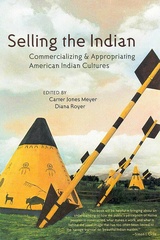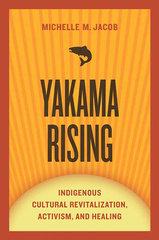
264 pages, 6 x 9
25 halftones, 3 line drawings
Paperback
Release Date:10 Mar 2016
ISBN:9780816509447
Indigenous Pop
Native American Music from Jazz to Hip Hop
The University of Arizona Press
Popular music compels, it entertains, and it has the power to attract and move audiences. With that in mind, the editors of Indigenous Pop showcase the contributions of American Indian musicians to popular forms of music, including jazz, blues, country-western, rock and roll, reggae, punk, and hip hop.
From Joe Shunatona and the United States Indian Reservation Orchestra to Jim Pepper, from Buffy Saint-Marie to Robbie Robertson, from Joy Harjo to Lila Downs, Indigenous Pop vividly addresses the importance of Native musicians and popular musical genres, establishing their origins and discussing what they represent.
Arranged both chronologically and according to popular generic forms, the book gives Indigenous pop a broad new meaning. In addition to examining the transitive influences of popular music on Indigenous expressive forms, the contributors also show ways that various genres have been shaped by what some have called the “Red Roots” of American-originated musical styles. This recognition of mutual influence extends into the ways of understanding how music provides methodologies for living and survival.
Each in-depth essay in the volume zeros in on a single genre and in so doing exposes the extraordinary whole of Native music. This book showcases the range of musical genres to which Native musicians have contributed and the unique ways in which their engagement advances the struggle for justice and continues age-old traditions of creative expression.
From Joe Shunatona and the United States Indian Reservation Orchestra to Jim Pepper, from Buffy Saint-Marie to Robbie Robertson, from Joy Harjo to Lila Downs, Indigenous Pop vividly addresses the importance of Native musicians and popular musical genres, establishing their origins and discussing what they represent.
Arranged both chronologically and according to popular generic forms, the book gives Indigenous pop a broad new meaning. In addition to examining the transitive influences of popular music on Indigenous expressive forms, the contributors also show ways that various genres have been shaped by what some have called the “Red Roots” of American-originated musical styles. This recognition of mutual influence extends into the ways of understanding how music provides methodologies for living and survival.
Each in-depth essay in the volume zeros in on a single genre and in so doing exposes the extraordinary whole of Native music. This book showcases the range of musical genres to which Native musicians have contributed and the unique ways in which their engagement advances the struggle for justice and continues age-old traditions of creative expression.
Inspired and inspiring…Indigenous Pop is a welcome first foray that asks big questions and points to some hidden corners where one might find overlooked answers.’—American Indian Quarterly
Inspired and inspiring…Indigenous Pop is a welcome first foray that asks big questions and points to some hidden corners where one might find overlooked answers.’—American Indian Quarterly
Jeff Berglund is a professor of English at Northern Arizona University. He is the author of Cannibal Fictions: American Explorations of Colonialism, Race, Gender, and Sexuality and co-editor of Sherman Alexie: A Collection of Critical Essays.
Jan Johnson is a clinical assistant professor of English and American Indian Studies at the University of Idaho. Her work appears in The Environmental Justice Reader, Sherman Alexie: A Collection of Critical Essays, and American Indian Performing Arts: Critical Directions.
Kimberli Lee is an associate professor of English at Northeastern State University in Tahlequah, Oklahoma. She is the author of “I Do Not Apologize for the Length of This Letter”: The Mari Sandoz Letters on Native American Rights, 1940–1965.
Jan Johnson is a clinical assistant professor of English and American Indian Studies at the University of Idaho. Her work appears in The Environmental Justice Reader, Sherman Alexie: A Collection of Critical Essays, and American Indian Performing Arts: Critical Directions.
Kimberli Lee is an associate professor of English at Northeastern State University in Tahlequah, Oklahoma. She is the author of “I Do Not Apologize for the Length of This Letter”: The Mari Sandoz Letters on Native American Rights, 1940–1965.
Introduction
1 Joe Shunatona and the United States Indian Reservation Orchestra
John W. Troutman
2 American Indian Jazz: Mildred Bailey and the Origins of America’s Most Musical Art Form
Chad Hamill
3 Jazz and the Politics of Identity: The Spirit of Jim Pepper
Bill Siegel
4 Singing for the People: The Protest Music of Buffy Sainte-Marie and Floyd Westerman
Kimberli Lee
5 Brothers of the Blade: Three Native Axmen: Link Wray, Robbie Robertson, and Jesse Ed Davis
Scott Prinzing
6 “We Were All Wounded at Wounded Knee”: The Engaged Resistance of Folk and Rock in the Red Power Era
Jan Johnson
7 “We’ll Get There with Music”: Sonic Literacies, Rhetorics of Alliance, and Decolonial Healing in Joy Harjo’s Winding Through the Milky Way
Gabriela Raquel Rios
8 Hearing the Heartbeat: Environmental Cultural Values in the Lyrics of Native Songwriters
Samantha Hasek and April E. Lindala
9 “The Story of a Lifetime”: Singing, Crossing, and Claiming in Lila Downs’s “Minimum Wage”
Casie C. Cobos
10 Babylon Inna Hopiland: Articulations of Tradition and Social Injustice by the Hopi Reggae Musician Casper Loma-da-wa Lomayesva
David S. Walsh
11 Blackfire’s Land-Based Ethics: The Benally Family and the Protection of Shi Kéyah Hozhoni
Jeff Berglund
12 A Reading of Eekwol’s Apprentice to the Mystery as an Expression of Cree Youth’s Cultural Role and Responsibility
Gail A. Mackay
13 “By the Time I Get to Arizona”: Hip Hop Responses to Arizona SB 1070
Marcos Del Hierro
Contributors
Index















